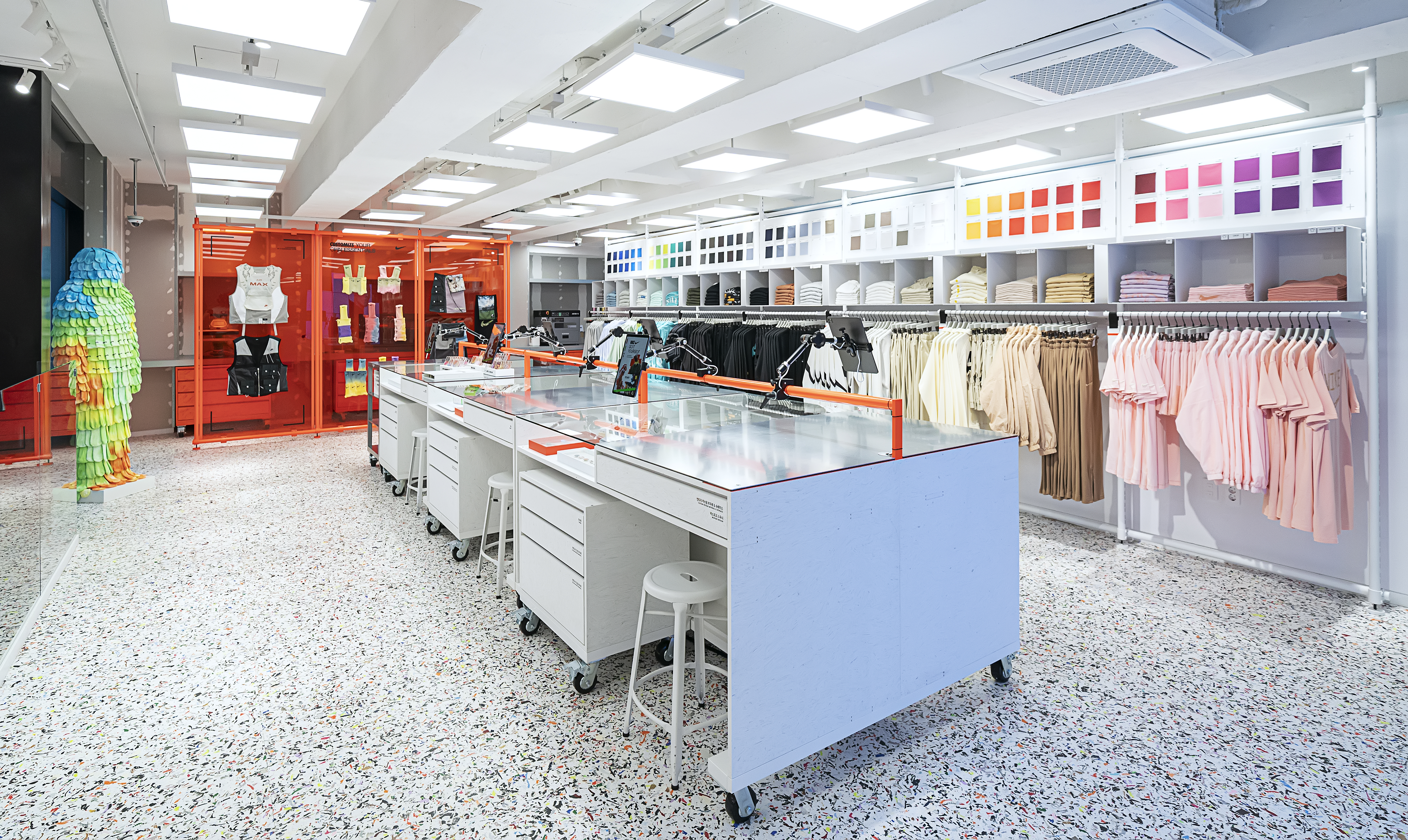22 : 07 : 22 : Weekly Debrief
This week: Nike augments retail in a Southern Korean neighbourhood, a sensory-bending culinary perfume, Bumble supports local businesses in Singapore, a vulva education platform, and ISTO promotes slow fashion through tourism.
1. These perfumes can also be poured on ice cream
US – Ice cream bar Salt & Straw is collaborating with Imaginary Authors Fragrances to create a range of edible perfumes that are being introduced as ice cream toppings. The three fragrances fuse ingredients that are both pleasant-smelling and flavoursome. A Cloud of Cocoa features Ecuadorian chocolate, malted milkshake and Japanese whisky; A Plume of Blooms features jasmine, honeysuckle and wild country garden; and A Swoon of Citrus combines Key lime pie, lychee and Italian lemon grove.
Balancing such ingredient combinations allows the perfumes to take on multi-functional uses in a novel but sophisticated way. ‘It was not only [about] finding the oils and then [figuring out] the concentrations to make them [both] something you’d want to smell [and] something unique to the perfume industry,’ says Josh Meyer, founder of Imaginary Authors fragrances. ‘[It was also about] making them something you’d want to spray on ice cream.’
In a similar vein, we’ve previously explored the Synaesthesia Scents that are merging olfactory and auditory experiences.
 Nike Style, Seoul
Nike Style, Seoul
2. Nike Style courts South Korea's local creators
South Korea – Recognising the growing importance of localism and community-building in many global regions, sportswear giant Nike has unveiled a neighbourhood-retail concept in South Korea’s Hongdae region. The concept, Nike Style, is the first of its kind and will be followed by more across multiple international markets.
In the inaugural store, visitors can make use of a content studio with customisable backdrops, and experience augmented reality (AR) content relating to product innovations and in-store art installations. It will also host workshops and events for its members. Here, the retail concept allows Nike to fine-tune its international appeal in a way that reflects the interests of a local subset of consumers.
‘The Hongdae neighbourhood holds a strong relationship with the sneaker and neighbourhood-retail community,’ the company said in a statement. ‘With the Style retail concept, Nike helps broaden the aperture of sports retail culture by continuing to blend physical and digital experiences.’ Elsewhere, we’ve previously explored the Studio Stores that have allowed retailers to become multimedia hubs for content creation.
3. Bumble connects local businesses with Singapore daters
Singapore – With daters in Singapore increasingly seeking opportunities to make in-person connections, dating app Bumble has launched a campaign to promote experiences for two. Created in collaboration with 13 small businesses in the country, the Date Do What campaign includes a date generator questionnaire to help daters find an experience tailored to their hobbies and interests.
Users aligning themselves with the Adventurous category, for example, will be recommended experiences with local businesses offering activities such as kayaking or roller skating. Meanwhile, a Foodies category will match users with a variety of local eateries. Through this campaign, Bumble is showing a continued evolution of its efforts to facilitate physical meetings – something we identified through the launch of its New York-based café and wine bar.
Lucille McCart, APAC director for Bumble, says: ‘The brand’s partnership with local small businesses helps create a fun environment for singles to bond with their dates and hopefully develop meaningful and lasting connections.’ Elsewhere, we’ve previously explored the ways in which Generation Z are embracing in-person dating.
4. Canesten develops a vulva education platform
UK – While idealised images of women’s bodies abound online, anatomically accurate depictions of vulvas are scarce. Tackling this issue, intimate health brand Canesten has launched the The Truth, Undressed, an educational platform intended to dispel common misconceptions and empower women and girls aged 11–18 to learn more about their genitalia.
The platform is part of the company’s Vagina Academy, an ongoing initiative to educate consumers about vulval and vaginal anatomy and health. To dispel the harmful notion that all vulvas look the same, the platform includes a library of images celebrating the anatomical diversity that can exist among women. The platform also focuses on vaginal health and offers educational resources about infections. 'We live in a world where porn is readily available on the internet, yet many young people don’t know the first thing about what kinds of infections there are or even what the vulva is supposed to look like,’ explains Daria Costantini, brand lead for Canesten.
Encouraging people to control of their sexual health and wellbeing, the initiative is part of the Sex Re-Education movement in which young people are seeking more realistic and inclusive perspectives.
 The Truth, Undressed by Canesten, UK
The Truth, Undressed by Canesten, UK
5. ISTO promotes slow fashion through tourism
Portugal – The sustainable fashion brand is taking inspiration from food and wine tours to promote its eco-conscious practices. Through its Factourism concept, the brand is positioning its factories as tourist destinations, where people can learn about the process of how organic clothes are made. The first tour is set to follow the journey of a white cotton T-shirt, starting with the weaving of the fabric and ending with the sewing-in of the label, and the brand plans to eventually offer hosted visits and guided tours across its factories.
While the brand is known for its ethical production and product transparency – with each price tag including a full price breakdown of the item’s cost – ISTO’s Factourism concept aims to solidify its claims in an accessible and tangible way. ‘We want to demonstrate that everything we tell [you] is true,’ says Pedro Palha, partner at ISTO. ‘That it really is made [sustainably] in Portugal.’
The launch of the new initiative heralds the brand showcasing an approach to open-source sustainability that provides material insight and education for its customers.
To future-proof your world, visit The Future Laboratory's forecasting platform LS:N Global for daily news, opinions, trends, sector specific insights, and strategic toolkits.
Want to read more?
Become a member today!
Sign up to one of our trends intelligence platform, LS:N Global and get unlimited access to a hive of insights - from microtrends and macro trends to market reports, daily news, research across eight industry sectors and much more.
Discover our memberships
Already a member? Click here to login
